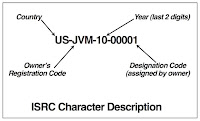 If you want to listen to Kanye West's new album The Life of Pablo, there's only one place online and that's Tidal. The problem is that after the 30 day trial period, you have to start to pay for the service, either at the $9.95 per month premium rate, or the more spendy $19.95 per month rate for the CD quality Tidal Hi-Fi.
If you want to listen to Kanye West's new album The Life of Pablo, there's only one place online and that's Tidal. The problem is that after the 30 day trial period, you have to start to pay for the service, either at the $9.95 per month premium rate, or the more spendy $19.95 per month rate for the CD quality Tidal Hi-Fi.Fearful of losing a chance at upselling trial subscribers that signed on just to listen to the album who's time has run out, Tidal has extended it's free trial period by 30 days.
There are probably a couple of reasons for this. First, Tidal screwed up Kanye's TLOP launch by not reporting it's numbers to Billboard, resulting in the album not even charting when it was released. Whether this was because the numbers might have been embarrassingly low, or just a human error hasn't been determined.
The second reasons might be that Tidal owner Jay-Z is reportedly looking for either a partner in the platform, or a straight buy-out. Any subscriber attrition, even those on free tier, looks bad, so it's in the company's best interest to bite the bullet and add another free month rather than have the numbers decrease.
One interesting thing is that Kanye and his producers keeps changing TLOP even after it's been released, which may be the wave of the future in terms of production. Hit the release deadline and perfect it later in the form of updates may become the norm before you know it.





